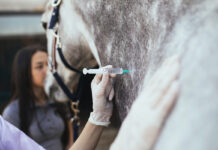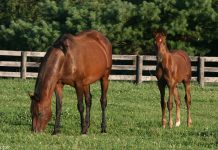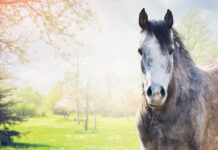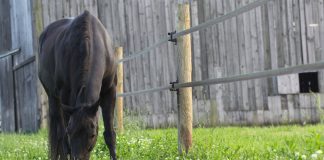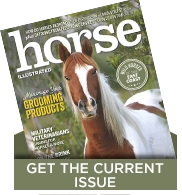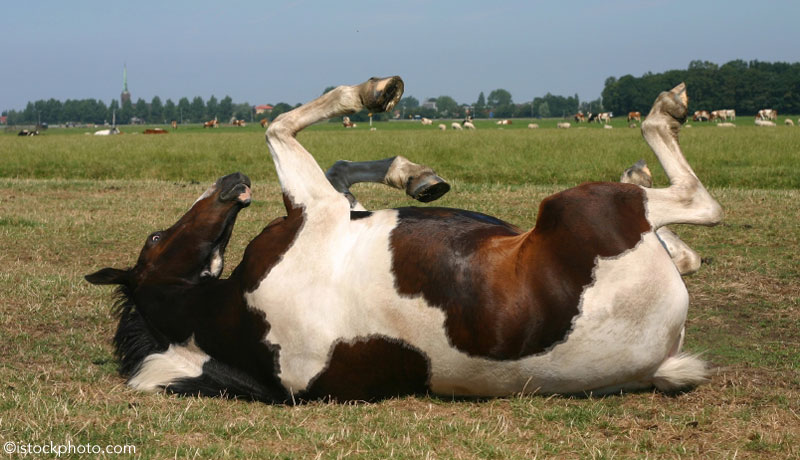
A: I chose this question because you bring up lots interesting things to talk about! First, let’s review the definition of “colic.” Since this word simply means “abdominal pain,” technically pain from ulcers falls under the larger umbrella of pain in the abdomen or colic. So a horse suffering from painful ulcers in the stomach is already experiencing colic. Confusing, I know.
It may help to learn that typically the abdominal pain due to gastric ulcers is described as mild, intermittent, and recurring colic. Of course, there are other conditions that also cause mild or intermittent or recurring colic, which is why a veterinary diagnosis is so important.
That brings me to the second point: there is only one FDA-approved drug for the treatment of ulcers in horses, and that is GastroGard, which contains the active ingredient omeprazole. This compound completely blocks acid production by the cells of the stomach in the short-term, giving tissues a chance to heal.
Tapering off the full, treatment dose of GastroGard is important in preventing the acid-rebound effect, where cells that produce acid temporarily go into overdrive once their function is restarted.
At the same time, there are specific natural ingredients proven to support the body’s own healing process that can be supplemented to the diet. And of course, removing as many risk factors for gastric ulcers as possible (such as a high-grain diet, infrequent hay feeding, and increased stall time) is key to preventing their recurrence.
Now to get to your question: do horses with ulcers have higher instances of colic episodes? By this I assume you mean higher instances of colic from other sections of the gastrointestinal tract such as the small intestine, cecum, and colon. While I would usually lean on research for the answer, there aren’t a whole lot of studies on this particular relationship.
Certainly anecdotally there are reports of a link between the two, although a prominent veterinarian and colic surgeon I was speaking with recently said it’s hard to know which comes first: colic in the hindgut causing so much pain and stress the horse subsequently develops gastric ulcers, or the presence of ulcers in the stomach causing the rest of the gastrointestinal tract to be dysfunctional, resulting in colic of small intestine, cecum, or colon origin.
It does stand to reason that, because gastric ulcers and hindgut colic share many of the same risk factors, that a horse who is prone to stomach lesions might also be prone to problems in other parts of the digestive tract. The short answer is: experts aren’t sure but they have their suspicions. I hope this helps!


